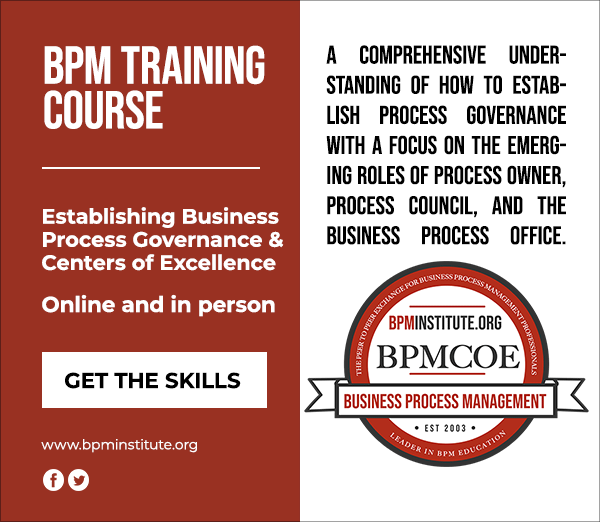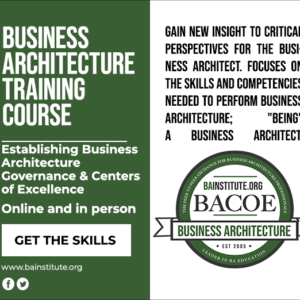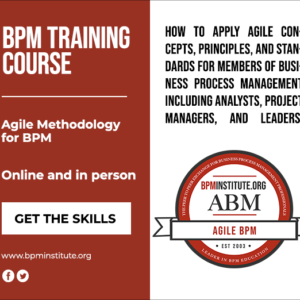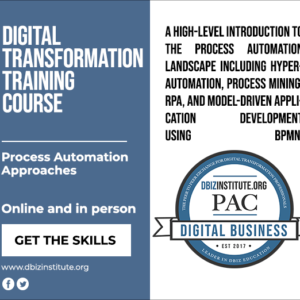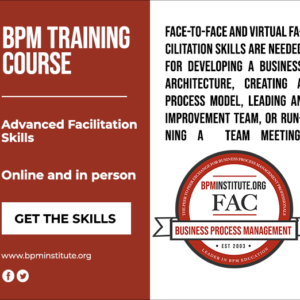Establishing Business Process Governance & Centers of Excellence – Live Online
$895.00
This course builds a comprehensive understanding of how to establish process governance with a focus on the emerging roles of process owner, process council, and the process office.
| Course Date | Standard Rate | Buy Before | Your Rate | Savings |
|---|---|---|---|---|
| Jun 12 '25 | $895.00 | May 13 | $795.00 | -$100.00 |
| Jul 28 '25 | $895.00 | Jun 28 | $795.00 | -$100.00 |
| Sep 18 '25 | $895.00 | Aug 19 | $795.00 | -$100.00 |
| Oct 27 '25 | $895.00 | Sep 27 | $795.00 | -$100.00 |
| Nov 20 '25 | $895.00 | Oct 21 | $795.00 | -$100.00 |
- Introduce the broad concepts of BPM Governance
- Understand the value, opportunities and challenges of establishing BPM Governance
- Understand how establishing a BPM CoE facilitates the introduction and adoption of BPM Governance
- Explore the best practices for designing and deploying BPM Governance and CoE
Attendees will learn a phased approach to adopting BPM Governance including cross-functional management, standardization, alignment, readiness assessment, and roadmap planning. This workshop is based on case studies from real-world experience of early adopters of BPM Governance and Centers of Excellence. It is a business-oriented, overview of BPM Governance providing actionable information for both business and IT professionals.
- Executive Process Owners
- Business Analysts
- Business Process Analysts
- Business Process Managers
- Project Managers
- Business Architects
- Global Process Owners
- Line of Business Managers and Supervisors
 The BPMS Certificate is the perfect way to show employers that you are serious about business process management. With in-depth knowledge of process improvement and management, you’ll be able to take your business career to the next level.
The BPMS Certificate is the perfect way to show employers that you are serious about business process management. With in-depth knowledge of process improvement and management, you’ll be able to take your business career to the next level.
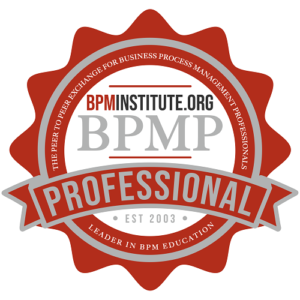 Tell the world that you are serious about business process management. Let your résumé feature your in-depth knowledge of process improvement and management. You’ll gain competitive advantage and open up opportunities down the road.
Tell the world that you are serious about business process management. Let your résumé feature your in-depth knowledge of process improvement and management. You’ll gain competitive advantage and open up opportunities down the road.
Additional information
| Courses by Topic | Business Process Management |
|---|---|
| Certificates | Business Process Management Specialist, Business Process Management Professional |
| Delivery Method | Live Online |














